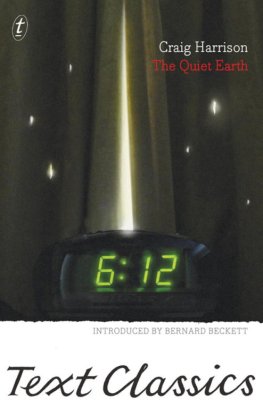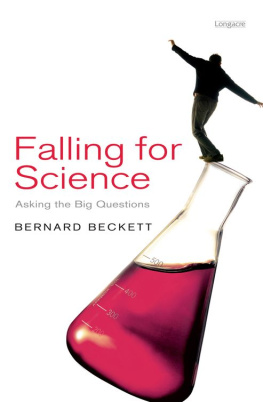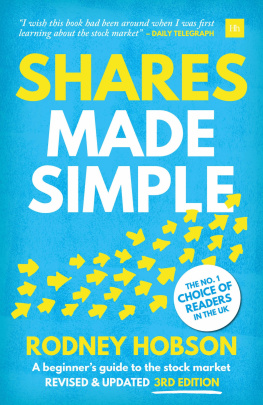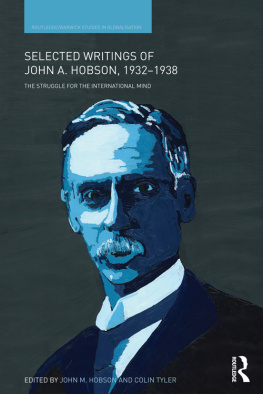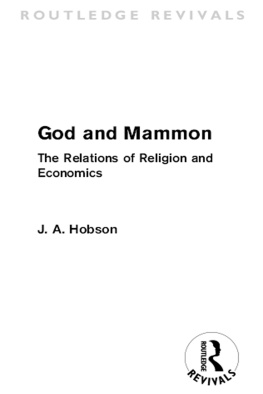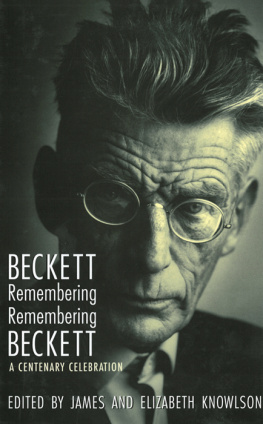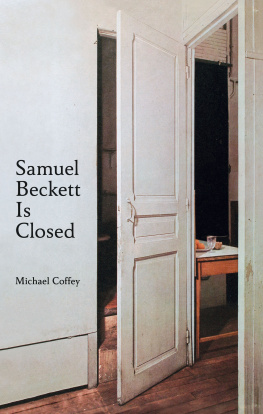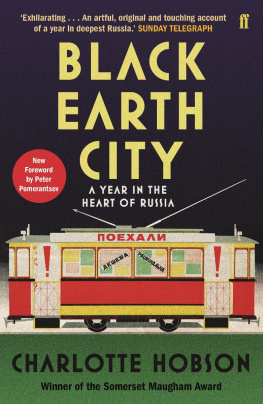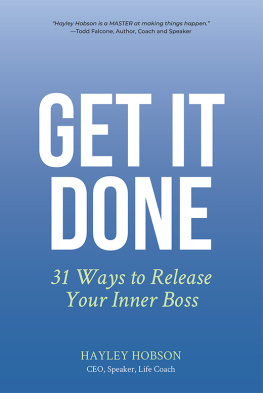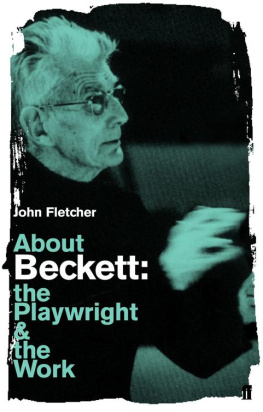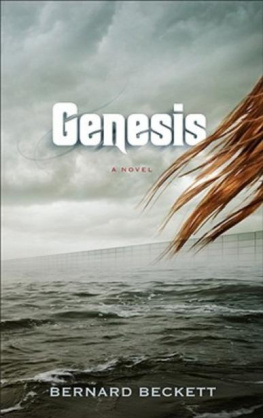Craig Harrison
THE QUIET EARTH
INTRODUCTION
No Exit
by Bernard Beckett
A CHILD cries out in the night for its parent. The parent responds. Perhaps it is thirsty, or had a nightmare, or is tangled in its bedclothes? No, it just needs a reassuring cuddle. It needs to know it isnt alone.
In Craig Harrisons The Quiet Earthfirst published in 1981 and loosely adapted into a cult sci-fi film four years laterit is not a child who awakens, but an adult, our narrator. John Hobson is not alone in the dark, but rather comes to with a flash of light at 6.12 a.m. in a motel room in Thames, on New Zealands North Island. And when he calls out into the world, nobody answers. Every home, every car, every shop and street is deserted. The concept cuts so cleanly to the heart of our most basic fears that the most surprising thing, as you enter this novel, is the realisation that you havent read the story before.
Perhaps the reason it is not a narrative staple is that the challenges inherent in telling it are so daunting. At some stage, in a novel like this, the reader must be offered an explanation. Yes, it would be a terrifying, searching experience to wake up as the last person left on Earth, but under what fictional circumstances can that scenario be made credible? In narrative terms, Harrisons opening gambit is like a crime writer opening with an exotic set of clues to a hideous case. It is a wager: stay with my story and I will bring this home. The reader, by picking up such a tale, enters into a contractone that creates a special tension. We are at once fascinated and wary, hoping the author can pull it off.
The other challenge is the extremely limited palette the writer gives himself. With nobody for the protagonist to talk to, nobody to generate external conflict, the novel must develop through a single character and his response to the nightmare scenario. A short story has permission to observe, to linger inside impressions and fears, but a novel of this type avoids storytelling at its peril. Harrison, who acknowledges his echoing of a childhood favourite, Robinson Crusoe, instead embraces it.
The artfulness with which both these challenges are met sets this book apart. It is a high-concept novel, and within the New Zealand literary tradition that already places it comfortably in the minority. The greater appeal, though, is not the freshness of the concept but its execution.
Initially, the story moves through the actions and emotions we might expect of the protagonist. Hobson does as we would do: he searches, pieces together tantalising clues (all the clocks have stopped at 6.12, yet surely some should have been running fast or slow), listens in to the radio static, and battles his rising sense of terror. Fear not just that he is alone, but that he is not psychologically equipped to be alone. That he will disappear within the existential chasm.
Whats happened? Any, any explanation would dam the panic I struggled to be objective An enormous isolation and loneliness, a sensation not of being observed but of being ignored, totally abandoned, was all I could separate from the confusion and fear. And this seemed all the more insidious because even now it was recognisable, I could feel my mind shoving blindly against its shape, a distended growth out of feelings Id always had.
This everyman quality, the camaraderie of the extreme, allows the first of the narrative tricks to be pulled. It is so easy to feel for Hobsons plight that we like him without this likeability having to be established through act or word. And that leaves it open for the author to establish a conflict between our instinctive loyalty toward the sufferer and the kind of man Hobson may actually be. With a certain stealth, the driving question moves from What would I do? to What might Hobson doand have done in the past? Its a dark and disorienting twist. As the character moves through his broken world, we come to realise that he might be implicated in the breaking of it.
The more Hobsons failure and fragility is revealed, the more we come to doubt his reliability. In clumsy hands, the unreliable narrator is a cheap trick, designed more to frustrate than to manipulate. Here, it is carefully employed. The genetics laboratory in which Hobson worked, the body in the chair, the vision on a dark road, the memories of an autistic son, Hobsons tentative attempts to piece together an explanation: none of this is incidental.
Just as we are beginning to come to terms with the frame of reference allowed us, everything is switched againand this requires my making one last plot revelation. Hobson is not alone. Another man has survived: Apirana Maketu, or The Maori, as our narrator uncomfortably insists upon calling him (but then, so many things about this narrator are uncomfortable). Here we are, a touch under halfway through the novel, and finally the potential for external conflict presents itself. Harrison gives it free rein. Two men, a Maori and a Pakeha, a soldier and a scientist, each with no one else in the world to turn to. But that doesnt mean they have to get along.
There is more than a little Sartre in this scenario. The worst thing we could ever imagine is being alone, until we imagine being with somebody else. No exit, indeed. And now the range of possible explanations for what Hobson calls The Effect is compressed. Whatever the reason one man was spared must now extend to two, and yet at first glance they have nothing in common. This is a fairly archetypal working of intrigue: beginning with open possibilities, challenging the reader to design their own structure into which these clues can be fitted, and then hitting them with an impossibility. Not progress, but a promise of progress, the reminder that the writer has not forgotten his contract with you.
The second character brings not just conflict, but an alternative viewpoint. Although there is a natural tendency for us to identify most strongly with the first character we meet in a novel, it is not inevitable. The flaws we have already seen in Hobson magnify under his response to Maketu. And therein lies perhaps the most unsettling of all the novels clues. For not only does the narrators treatment of his sole companion speak poorly of him, but the way Hobson tells it The Maoris descriptions of himself contain the same offensive reductions and simplifications. Again we are confronted with the possibilitythe only palatable possibilityof the narrators unreliability.
The tension mounts. Tension between Hobson and Maketu, between fact and fiction, between cause and Effect. It is the nature of The Quiet Earth that you cannot adequately discuss the ending without saying too much. By the time the inevitable revelation arrives, we understand this story is as much an examination of John Hobson as it is an examination of the circumstances that brought his world to a standstill at 6.12 one sunny morning. We no longer like the manwe now know him to be self-obsessed, paranoid and dangerously violentyet the intrigue remains. The story, compelling enough as a series of episodes, has one last surprise in store for us. What is it, exactly, that the reader has been witness to?
While some people have claimed there is a deliberate ambiguity to the ending, to my mind this undervalues the authors craft. Craig Harrison, who has been a successful playwright and published five other novels in different genres over the past forty-odd years, knows exactly what he is doing. That there is only one chilling possibility left ensures this book can be rightfully considered a classic.
The pull of the earth took hold of my spine, my limbs spread over space. There was the breath-beat of falling, spiralling, the air pushing hard for a moment and then letting go. The light split open my eyelids. It was brilliant, drained of colours, painful. An immense silence rushed around me. My throat was trying to make a noise, to beat it back. The light pulsed redness. Then the silence expanded.

